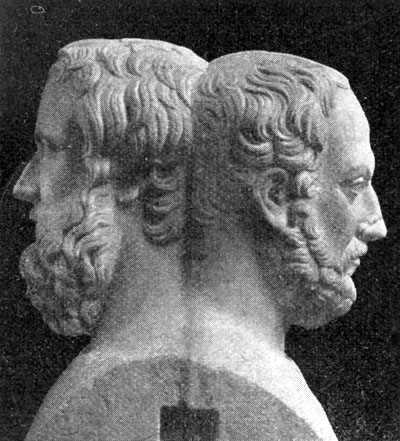Main Content
Lesson 1: What is Historical Media Literacy?
Historical Stories
.jpg)
This sense of the past as important, valuable, or powerful isn’t new to modern society. People have always told stories about what they thought (or wished) had happened in the past. The earliest written works of human culture—the Homeric epics of ancient Greece, the Gilgamesh epic of ancient Mesopotamia—are set centuries earlier than when they were first told or written down. Historical stories have been a major part of literature around the world ever since. Back then, it was commonly expected that such stories would help the listener or reader understand some intellectual or moral truth—not that they would be literally true. Some scholars suggest this is why early Christians saw no problem with four differing gospel accounts of the history of Jesus’s life—each taught a different kind of truth. Of course, some ancient writers did purport that their accounts were actually true. The English word “history” comes from the ancient Greek term for making inquiries, as Herodotus claimed that his writings came from his travels to ask questions of people he believed knew what happened in the past. Yet this did not stand in the way of Herodotus filling his pages with fantastic tales (like men in central Asia whose heads were located in the middle of their chests).

Thucydides’ History of the Peloponnesian War may be the first “modern-style" history, in that the author provides a researched, materialist account of what happened without supernatural elements. Yet this did not stop Thucydides from including lengthy speeches (such as Pericles’ funeral oration) that happened years earlier and which he could not have copied down in real time. Numerous medieval Islamic scholars studied the past to write books combining history, philosophy, and theology—such as Ibn Khaldun’s sociological history of the Arabs that also included speculation on dreams and visions. After the spread of printing and the growth of a publishing industry in Western societies, some of the most popular novels were historical stories—perhaps no one more successful than Sir Walter Scott. His fictitious novel of medieval English knighthood Ivanhoe (1819) influenced culture as far away as the American South (where many white landowners began to think of themselves as chivalrous and knightly). What distinguished the historical novels of the 19th century from earlier storytelling was that, unlike medieval legends such as King Arthur, they were set during known events and often relished historical details as backdrops.
